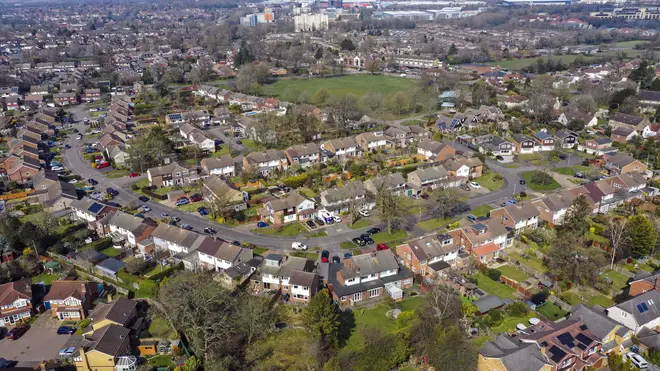
James O'Brien 10am - 1pm
1 December 2020, 08:04

House prices lifted to a new record high of £229,721 on average in November after jumping by 6.5% annually, Nationwide Building Society said.
House prices hit a new record high for the fourth month in a row in November, according to an index.
The average UK property value lifted to a new record high of £229,721 on average in November after jumping by 6.5% annually, Nationwide Building Society said.
The 6.5% increase marked the sharpest annual growth in nearly six years.
As well as standing at a new record high in November, UK house prices had also previously hit new records in August (£224,123), September (£226,129) and October (£227,826).
Property values increased by 0.9% month on month in November.
Robert Gardner, Nationwide’s chief economist, said housing market growth is likely to slow, perhaps sharply, in the months ahead, if labour market conditions weaken as expected.
He said: “Annual house price growth accelerated from 5.8% in October to 6.5% in November – the highest outturn since January 2015.
“House prices rose by 0.9% month on month in November after taking account of seasonal effects, following a 0.8% rise in October.
“Data suggests that the economic recovery had lost momentum even before the latest lockdown came into effect.”
He continued: “Despite these headwinds, housing market activity has remained robust.
“October saw property transactions rise to 105,600, the highest level since 2016, while mortgage approvals for house purchase in the same month were at their highest level since 2007 at (around) 97,500.
“The outlook remains highly uncertain and will depend heavily on how the pandemic and the measures to contain it evolve as well as the efficacy of policy measures implemented to limit the damage to the wider economy.
“Behavioural shifts as a result of Covid-19 may provide support for housing market activity, while the stamp duty holiday will continue to provide a near-term boost by bringing purchases forward.
“However, housing market activity is likely to slow in the coming quarters, perhaps sharply, if the labour market weakens as most analysts expect, especially once the stamp duty holiday expires at the end of March.”
A stamp duty holiday was introduced by Chancellor Rishi Sunak in July and will run until March 31 2021.
Joshua Elash, director of property lender MT Finance, said: “The Nationwide figures are as positive as they are fragile.
“They are a clear reflection of the positive impact of the stamp duty holiday implemented by the Chancellor, coupled with strong underlying demand for home ownership, and continued support by the mortgage sector. This good work must not be undone.”
Guy Harrington, chief executive of residential lender Glenhawk, said: “Extending the stamp duty holiday looks likely to be the only way to avoid a painful market slump, although this type of artificial government stimulus never ends well.”
Marc von Grundherr, director of Benham and Reeves, said: “We’re seeing strong evidence of sustained defiance by the UK property market on all fronts.
“Mortgage approvals continue to spiral, we’re reaping the benefits of a considerable uplift in buyer demand in terms of actual transactions completing and, as a result, house prices are climbing to heights we’ve not seen in quite some time.
“These certainly aren’t indicators of a market running low on steam as we approach the festive period and we can expect to see this momentum carry through until spring of next year, at the very least.”
Nicky Stevenson, managing director at Fine & Country said: “As soon as we hit the new year, we will likely know just how many people moved their plans forward when they heard the Chancellor announce the stamp duty holiday.
“The closer we get to the end of March, when the scheme ends, the more these market metrics will reflect the back of that wave, the crest of which has already started to take shape…
“With only four months of stamp duty tax breaks left, vacant and chain free properties at both ends of the market have become highly prized for their ability to slip through solicitors’ hands with ease.”
Samuel Tombs, chief UK economist at Pantheon Macroeconomics said: “A relatively narrow cohort of well-off households, who already own their homes with little debt, seem to be driving the market with the savings that they have realised this year from working from home.”
He continued: “House prices remain vulnerable to fall next year, when the trend towards working from home will be going into reverse, stamp duty will be higher, and mortgage rates still will be above their pre-Covid level, due to the weakened labour market.
“We think it will take further government interventions – either extending the stamp duty holiday, or establishing a new mortgage guarantee scheme – to prevent house prices from giving back some of 2020’s gains next year.”